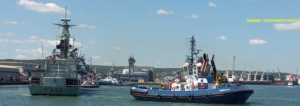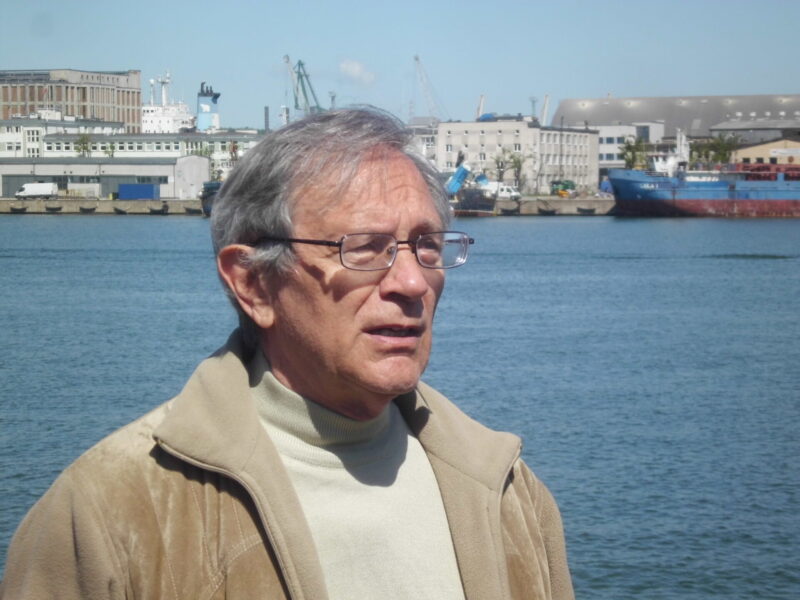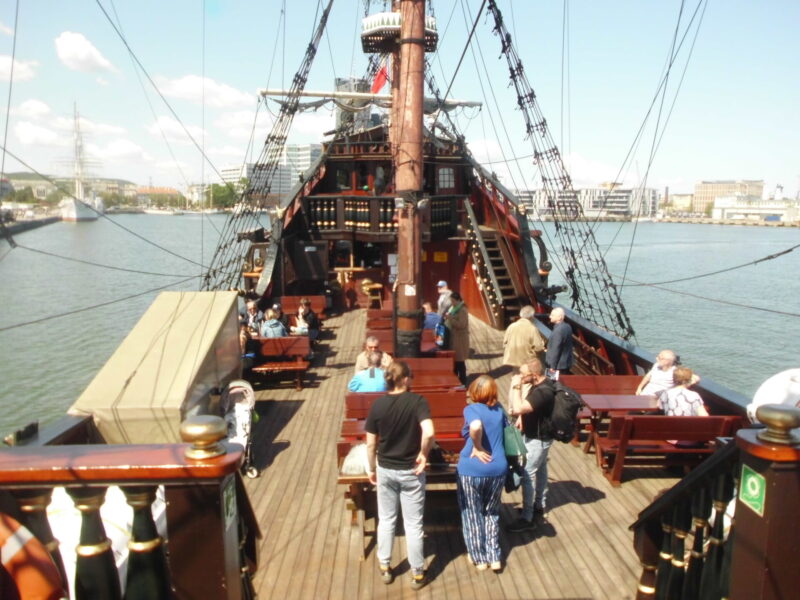Business cruise of the Baltic Sea and Space Cluster



Business cruise of the Baltic Maritime and Space Cluster around the Port of Gdynia.
– In this port and in its surroundings, there are companies that make up the most modern Polish maritime economy – says Marek Grzybowski, President of the Cluster Management Board, inviting cluster members and guests on board.
The Management Board of the Baltic Maritime and Space Cluster once again organized the promotion of businesses developed in the Port of Gdynia and Gdynia Shipyards. Many members of the Baltic Maritime and Space Cluster operate here: the Port of Gdynia Authority, Hydromega and CADOR companies, CRIST and NAUTA shipyards, the Pomeranian Special Economic Zone, the Maritime School in Gdynia, the Center for New Competences and one of the world’s leading Maritime University.






M/S Dragon is a passenger ship stylized as a 17th-century galleon. The ship was built on the basis of a military tugboat. Dragon was launched in 2006. On the bow of this ship is a figurehead depicting a dragon. The entire unit has been very interestingly designed and decorated with ornaments and sculptures.
– Today we have a meeting of the Baltic Maritime and Space Cluster here, because the Port of Gdynia is an area not only for reloading, but also for the production and repair of ships and the creation of innovations – said prof. Marek Grzybowski – president of the board of the Baltic Maritime and Space Cluster, main organizer of the cruise:
 Fot. Kazimierz Netka.
Fot. Kazimierz Netka.
There are hubs of the Baltic Maritime and Space Cluster in the port area. One is a hub for the production of zero-emission ships and innovative ships, including repairs and conversion of ships into innovative ones. The second is an IT hub, i.e. companies that provide comprehensive IT support to other companies. The third hub is the educational hub.
Training activities are conducted in the area of the Port of Gdynia and cluster members form an educational hub, starting with the LKK company, which uses virtual reality on its simulators for training for ships and cranes in ports. The Maritime School in Gdynia has simulators and trains professional employees for ships, for servicing offshore installations of both oil and gas platforms and offshore related to offshore wind energy. The Maritime School also educates specialists for equipment assembly. Near the Port of Gdynia there is a Maritime University – a member of the cluster. The Maritime University operates almost in the port area. Nearby is the Faculty of Navigation, where first and second degree studies are conducted on ships of various types, including offshore service ships, but also postgraduate studies for managers operating in the maritime economy and offshore wind energy. Managers for managing offshore projects are educated here. The Maritime University also offers MBA studies. Here, managers are prepared to manage the construction of wind farms and projects related to the construction of offshore wind farms.
– There are members in the cluster who offer comprehensive services, both port and logistics, as well as repairs and construction of innovative vessels, IT support for companies that want to be environmentally and environmentally friendly, and finally there is an educational hub that provides comprehensive education in the field of maritime competitions of various types, and, as we have calculated, there are about 300, including 110 jobs related to offshore wind energy. said Marek Grzybowski, President of the Cluster.
 Fot. Kazimierz Netka.
Fot. Kazimierz Netka.
Here, on board, is the Pomeranian Special Economic Zone – Baltic Port of New Technologies, where companies of various types work, from production, through renovation, construction and design. There are representatives of ports, universities, including the Maritime University, Gdańsk University of Technology, University of Gdańsk, the University of Administration and Business, as well as representatives of hubs – said prof. Marek Grzybowski – president of the board of the Baltic Maritime and Space Cluster.
The new Public Ferry Terminal in Gdynia is extremely important for shipping on the Baltic Sea. Thanks to this terminal and Stena Line ferries, Poland has a cargo and passenger connection with Sweden.
During the cruise, there was a presentation of the members of the Baltic Sea and Space Cluster from the side of the water: Port of Gdynia; Nauta Repair Shipyard; Christ Shipyard; Baltic Port of New Technologies of the Pomeranian Special Economic Zone; other entities operating in the Port of Gdynia and in the Pomeranian Special Economic Zone.
